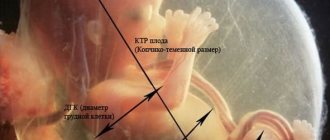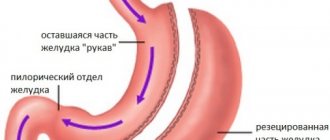Author: Sozinova A.V., obstetrician-gynecologist, has been in continuous practice since 2001. Medical editor: Zemereva N.Yu., physiotherapist. August, 2021.
Pregnancy is a very important period in a woman’s life, so she should pay special attention to it. You should also take increased responsibility when it comes to nutrition.
In the first trimester, a woman is often bothered by toxicosis, nausea, heartburn and problems with stool. Proper nutrition during these periods will help overcome possible difficulties and serve as the basis for proper organ formation and normal fetal development.
Nutrition rules
The purpose of the diet in the first trimester of pregnancy is to provide the mother’s body with the building material necessary for the formation of the child’s main organs.
In addition, the diet, which should be followed from the first days of pregnancy, is designed to provide the female body with vitamins and microelements, normalize the functioning of the digestive tract and prevent or reduce the manifestations of early toxicosis.
To ensure that your unborn child does not suffer from nutritional deficiencies, you should not adhere to the principle of “eating for two”; you just need to provide your body and the embryo with complete but healthy food.
KBZHU daily diet in the first 14 weeks of pregnancy:
Energy value: 2200-2700Kkcal.
- Proteins: 60-90 gr.
- Fats: 50–70 gr.
- Carbohydrates: 325–450 g.
Diet
The diet in the first trimester should be divided, meals should be frequent, up to 5-6 times a day and in small portions.
- Firstly, it promotes better digestion of foods and absorption of nutrients.
- Secondly, frequent snacking prevents overeating and excessive weight gain.
- Thirdly, they smooth out the symptoms of toxicosis.
- In addition, split meals normalize intestinal function and ensure regular bowel movements. The last meal should not be later than 2-3 hours before going to bed.
Dishes high in protein and fat are best eaten before lunch.
The energy value of dinner should not exceed 20% of calories, which means that eating too much before bed is contraindicated.
Important! There is no need to go to rest immediately after eating; it is better to do this after 30-40 minutes.
To reduce the risk of congenital pathologies in the fetus, the diet should contain proteins, folic acid, zinc, selenium, and copper. Iodine, cobalt, vitamins B and C will reduce the symptoms of toxicosis in a woman, and will also ensure full development of the thyroid gland in the fetus.
Culinary processing. Diet in the first trimester is about ensuring healthy nutrition, so food should be boiled, baked or steamed. Fried foods increase the already increased load on the stomach and liver and are worse absorbed and digested. In addition, with the specified methods of cooking, the vitamins necessary during pregnancy are preserved in it as much as possible.
Food temperature. Food should not be too hot, more than 60°C, or too cold, less than 15°C. Hot or cold food irritates the stomach, disrupts digestion and is less digestible. In addition, a violation of the temperature regime does not contribute to appetite, which is important for nausea.
Free liquid. Free fluid intake should not exceed 1.5 liters per day. Excessive drinking increases the load on the kidneys. You should avoid drinking strong tea and coffee, which promotes spasm of blood vessels and increases blood pressure (can lead to miscarriages).
Alcohol. Alcohol is strictly contraindicated during pregnancy, especially in the first trimester. Consumption of alcoholic beverages disrupts the formation of the main organs and systems of the fetus, which leads to severe congenital defects that are incompatible with life and termination of pregnancy.
Nutrition during pregnancy in the second trimester
Women in the second trimester usually have an increased appetite and do not feel full. The calorie content of food should be increased to 2600 kcal. The focus should be on foods rich in:
- calcium - fermented milk products (low-fat), broccoli, white cabbage, kohlrabi. Reduce calcium absorption: chocolate, coffee and carbonated water
- iron - meat, especially veal, turkey, rabbit, pork and beef
- iodine - seafood, seaweed, iodized salt.
Elevit Pronatal will help support the body during pregnancy in the 2nd and 3rd trimesters. It will provide the need for folic acid, iron, vitamin D.
Folic acid will help prevent the development of hyperhomocysteinemia, a condition that causes pathologies in the cardiovascular system, which is also a negative point during pregnancy, since the flow of nutrients to the fetus is disrupted.
Iron deficiency in a pregnant woman's body causes anemia, which can lead to premature birth and other not very pleasant consequences.
Elevit Pronatal is recommended as a source of iron; it can be taken during pregnancy planning and until the end of lactation.
Useful in the first trimester
The menu of pregnant women in the first trimester should include a large amount of fiber, as a stimulator of intestinal motility and a source of vitamins and microelements.
It is imperative to expand the menu with dairy products, they are an ideal source of calcium. The consumption of cereals, vegetable protein, minerals (iron, selenium, zinc) and vitamins is also indicated.
Simple carbohydrates should be replaced with complex ones - they take longer to break down, do not affect weight, do not cause spikes in blood sugar and provide a woman with energy.
Replace animal fats with vegetable oils, eat fish (phosphorus, polyunsaturated fatty acids).
What is possible in the first trimester
Porridge (carbohydrates)
- from buckwheat (source of protein and iron),
- oatmeal,
- millet,
- barley,
- wheat
Bread (carbs)
- from wholemeal flour,
- with the addition of bran,
- wholegrain;
Sweets (carbohydrates)
- paste,
- honey (1 teaspoon several times a day),
- jam is limited;
Dairy (proteins)
- low-fat milk,
- low fat cottage cheese,
- kefir, fermented baked milk,
- mild and unsalted cheeses,
- drinking yoghurts.
Eggs (whites)
- hard-boiled eggs or scrambled eggs;
Meat (proteins, fats)
- lean veal, beef;
- beef liver, chicken liver;
- rabbit;
- boiled or baked poultry;
- fatty fish (mackerel, greenling, salmon).
Nuts (proteins, fats)
- walnuts;
- peanuts, almonds
Fats
- butter (limited);
- vegetable oils.
Fruits and vegetables (vitamins, fiber)
- greens (lettuce, parsley and dill in limited quantities);
- any fresh or boiled vegetables, salads made from them (cabbage, carrots, bell peppers, tomatoes, cucumbers, cauliflower and Brussels sprouts, and others);
- fruits, especially local ones, berries (currants, cherries, gooseberries - sources of vitamin C);
- seaweed (source of iodine);
Beverages
- green tea with lemon,
- weak black tea,
- fruit drinks,
- fresh juices.
Vitamins in the first trimester
Vitamins are of great importance in the first trimester. Therefore, you should eat plenty of fresh vegetables and fruits.
Firstly, it is plant fiber, which is beneficial for the normal functioning of the intestines, and, secondly, it is a storehouse of vitamins and minerals.
Folic acid is important in the formation of the nervous system of the embryo, calcium is needed for the formation of the bone skeleton and teeth, vitamin D for the prevention of rickets, phosphorus is necessary for the brain, iron prevents anemia, magnesium, vitamin E and B6 prevent abortion, iodine affects the intellectual development of the child after birth.
| Name | Nutrient content |
| Wholemeal bread |
|
| Rye bread |
|
| Bran |
|
| Dry yeast |
|
| Oatmeal |
|
| Buckwheat |
|
| Dark brown rice |
|
| Legumes |
|
| Milk |
|
| Cottage cheese |
|
| Cheese |
|
| Eggs |
In yolks:
|
| Nuts |
|
| Potato |
|
| Beef, veal |
|
| Beef heart |
|
| Beef liver |
|
| Kidneys |
|
| Cod liver |
|
| Vegetable oils |
|
| Butter |
|
Fruits and berries containing vitamins
Vitamin C (ascorbic acid).
- Berries: black currant, rose hips, strawberries, raspberries,
- Vegetables: cauliflower and white cabbage, tomatoes, sweet peppers, sorrel, spinach, green onions, dill, parsley.
- Citrus fruits: grapefruits (preferred because they have the most vitamin C and are less allergenic than other citrus fruits)
- oranges
- tangerine (most allergenic)
Vitamin BC (folic acid)
- dark green vegetable leaves,
- citrus fruits and juices,
- yellow vegetables and fruits (sweet peppers, carrots, apricots, dried apricots, peaches),
Vitamin P (bioflavonoids)
- black currant,
- oranges, lemons,
- grape,
- rosehip, lettuce, parsley.
Vitamin E (tocopherol)
- germinating cereal crops,
- green beans, green peas, corn, oats,
- salad,
- vegetable oils.
Macro and microelements
Calcium
- almonds, peanuts,
- dried fruits.
Calcium absorption is linked to phosphate and magnesium levels, as well as vitamin D.
Potassium
- apples,
- plums, apricots, peaches,
- mulberry,
- gooseberry,
- blueberry,
- dried apricots, raisins,
- baked potato,
Salt in the first trimester
Already starting from the first trimester, you need to start limiting the amount of table salt (sodium chloride) to 10-12 grams. (the usual daily norm is 12-15 g).
However, here you need to look at the condition of the pregnant woman - if the amount of salt consumed is higher than normal, but there are no health problems, for example, excessive weight gain or high blood pressure, then you can simply monitor the condition and refuse salty foods at the first appearance of unwanted symptoms.
A few words about macrosomia
“She gave birth to a hero,” they say about a woman whose baby is much larger than others. In fact, the baby was born with macrosomia. This word refers to a condition when a child’s body weight at birth is 4000 g or more. Currently, the incidence of macrosomia is rising from 1% several decades ago to 14% today.
When doctors talk about the causes of macrosomia, they most often mention diabetes mellitus or obesity in the mother, tall parents, and Beckwith-Wiedemann syndrome. This condition can cause a complication during childbirth - a difficult birth of a shoulder, leading to injuries to the fetus and mother. Suspicion of macrosomia may be an indication for cesarean section.
In most cases, the cause of macrosomia cannot be established, but it has already been proven that its development is provoked by a lack of vitamins and minerals involved in the regulation of insulin synthesis: folic acid (B9), vitamin B12, vitamin D, antioxidants - vitamins C and E, magnesium, manganese, zinc.
Proper nutrition during pregnancy, in which the expectant mother’s body receives all the necessary microelements and vitamins in sufficient quantities, is the key to the baby’s health, the mother’s good condition and the normal course of childbirth.
Recommended daily food intake
According to the recommendations of the Federal State Budgetary Institution “Federal Research Center for Nutrition and Biotechnology”, pregnant women should consume the following amount of food per day4:
- Wheat bread 120 g;
- Rye bread 100 g;
- Wheat flour 15 g;
- Cereals, pasta 60 g;
- Potatoes 200 g;
- Vegetables 500 g;
- Fresh fruits 300 g;
- Juices 150 ml;
- Dry fruits 20 g;
- Sugar 60 g;
- Confectionery 20 g;
- Meat, poultry 170 g;
- Fish 70 g;
- Milk, kefir and fermented milk products no more than 2.5% fat content 500 ml;
- Cottage cheese 9% fat 50 g;
- Sour cream 10% fat g;
- Butter 25 g;
- Vegetable oil 15 g;
- Egg 0.5 pcs.;
- Cheese 15 g;
- Salt 5 g.










